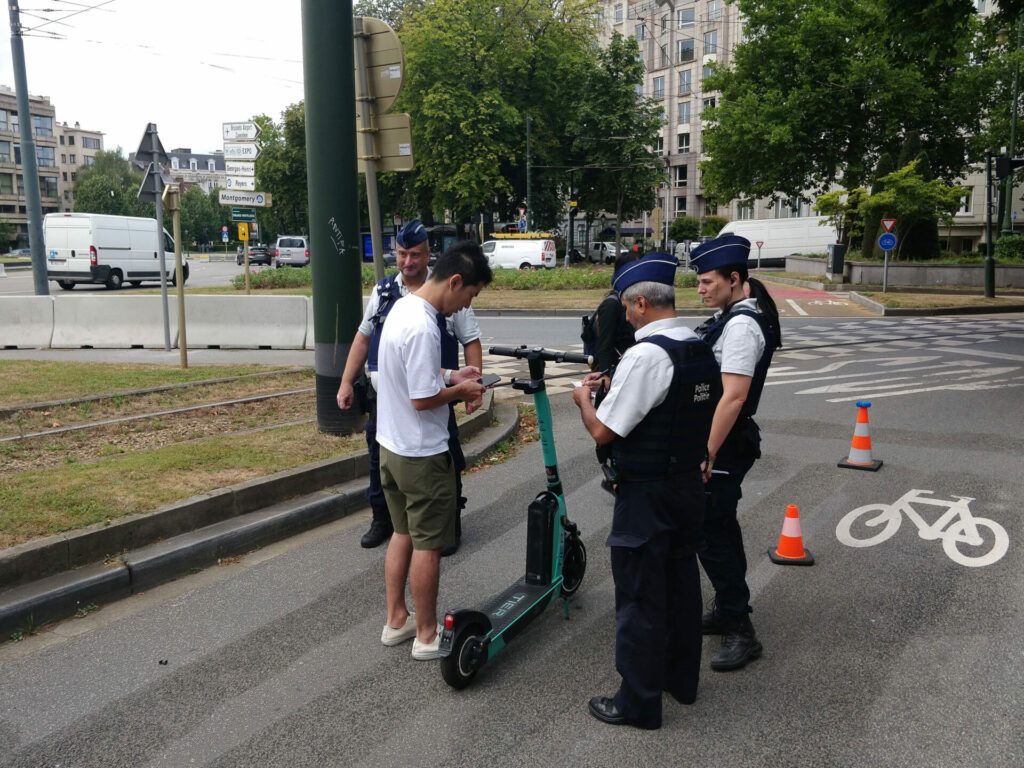Many e-scooters users across Belgium are unaware of both the old and new rules on their use, a recent survey found.
With the rapid increase in the number of road accidents involving e-scooters in recent years and the nuisance they can cause for other road users, especially pedestrians, the Federal Government introduced stricter regulations for their use last year.
In practice, however, they are still insufficiently known, a survey of 2,000 road users conducted by road safety institute Vias showed.
In 2022, in one in ten injury accidents involving an e-scooter, the driver was under 16. To combat this problem, the latest laws state people under the age of 16 cannot operate e-scooters (except in residential areas and play streets), however, more than four out of ten people living in Belgium (42%) are unaware of this change.
In Wallonia and Brussels, meanwhile, one in seven users (14%) think that the limit has been set at 14 years.
Still on pavements, but not with two
Three out of ten users (31%) are unaware that since last year, they can no longer ride on the pavement, and instead must ride on the cycle paths or the road.
Meanwhile, just 12% of users are unaware of the fact that it is forbidden to ride two people on the same e-scooter. "It is notable, however, that in Brussels the rule is least well known (26% are unaware), even though most scooters are used there," Vias noted.
When it comes to the pre-existing rules, more than half of users (57%) are not aware of the fact that the speed limit for scooters is limited to 25 km/h. Some road users think the limit is lower, partially because in Brussels, the speed limit is 20 km/h and vehicles are automatically limited to 8 km/h in pedestrian zones in the city centre.
Related News
- Brussels slashes maximum number of e-scooters from 21,000 to 8,000
- Poor e-scooter parking continues to plague City of Brussels
By contrast, one in four (24%) think the speed limit is 30 km/h or higher or believe there is no speed limit. "This can obviously pose road safety hazards."
E-scooter users, like cyclists, are allowed to ride on limited one-way streets, however, more than four out of 10 people (44%) are unaware of this, while seven in 10 road users (74%) do not know they can turn right through a red light or straight ahead at intersections where there are signs allowing this.
Stricter rules?
Vias has published a quiz on its website to refresh the knowledge of riders. "If it turns out that accident rates with e-scooters continue to rise and the July 2022 measures prove insufficient, stricter conditions may have to be introduced," Vias noted.
In Brussels, such stricter rules are already being discussed. Last week, the draft decree proposed by the Brussels-Capital Region Government on shared mobility vehicles was adopted at the second reading.
The law will be stricter and simpler than the one presented last October, and will specifically limit the number of e-scooters in the region, impose larger fines when rules are violated and structurally implement drop-off zones.

